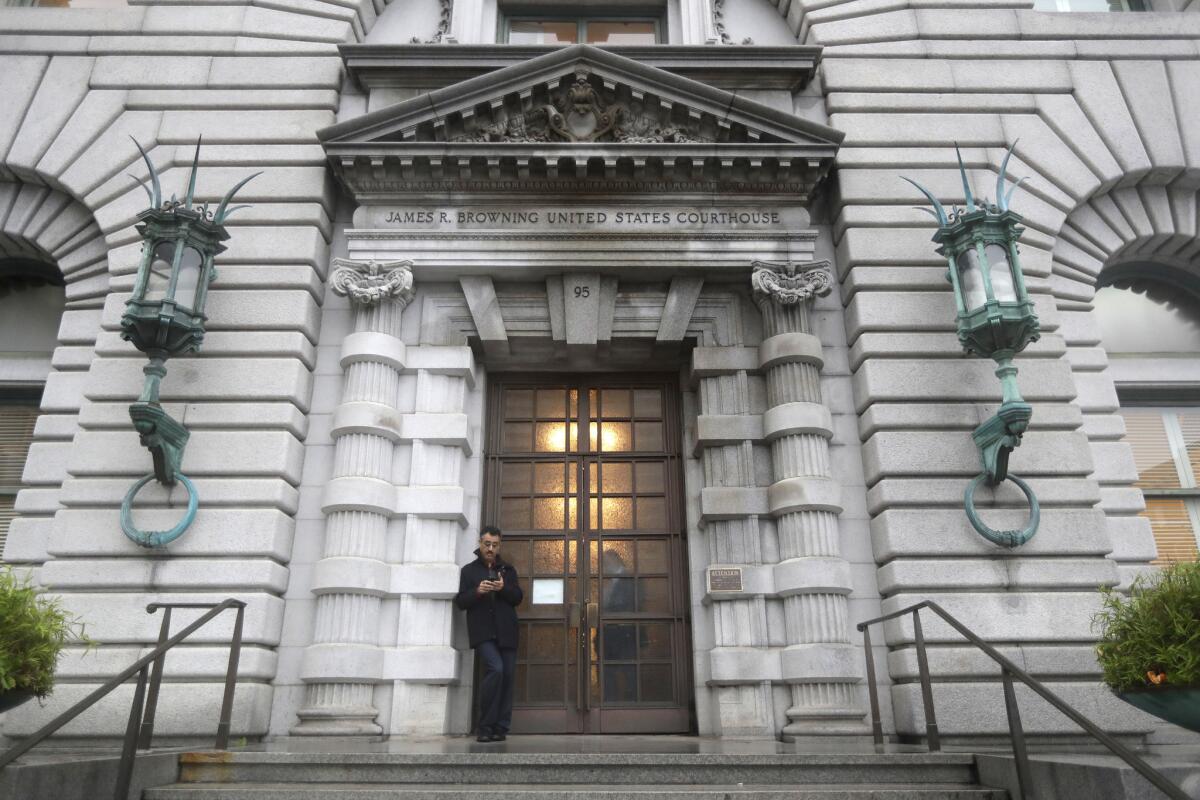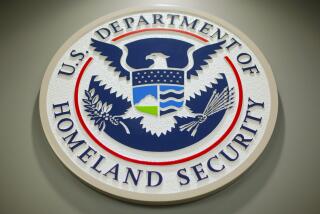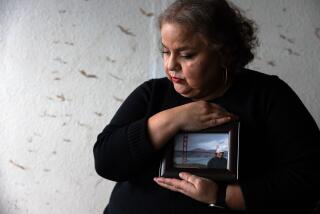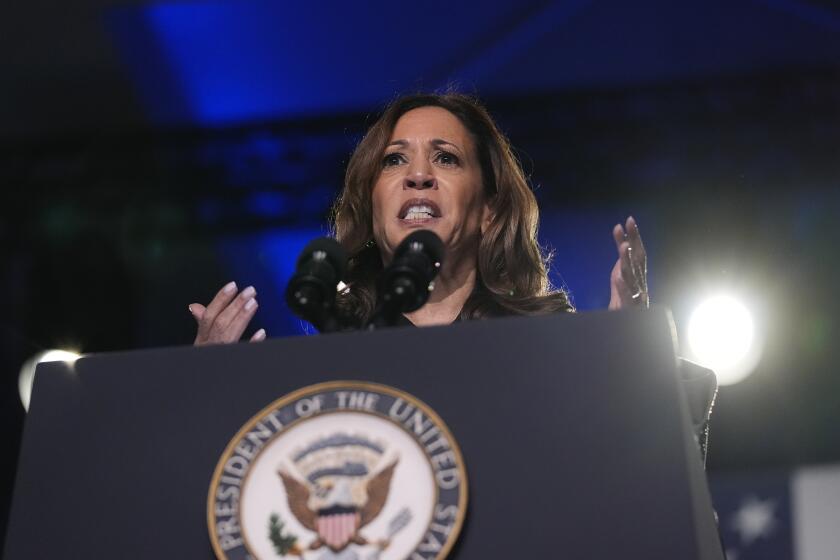Appeals court says Trump can deport hundreds of thousands of immigrants; challenge certain

A federal appeals court decided 2 to 1 Monday that the Trump administration may deport hundreds of thousands of immigrants who previously received temporary protected status for humanitarian reasons.
The ruling by a panel of the U.S. 9th Circuit Court of Appeals overturned an injunction protecting immigrants from El Salvador, Haiti, Nicaragua and Sudan from being deported pending litigation. The Trump administration ended their protections, saying their home countries were now safe for them.
The decision affects 300,000 non-citizens and 200,000 of their children who are U.S. citizens. Many of the immigrants have lived in the U.S. for decades.
Judge Consuelo M. Callahan, writing for the majority, said federal law does not permit the judiciary to second-guess decisions by the secretary of Homeland Security on which countries’ citizens receive protected status.
“To the extent the TPS statute places constraints on the Secretary’s discretion, it does so in favor of limiting unwarranted designations or extensions of TPS,” wrote Callahan, an appointee of President George W. Bush. She was joined by Judge Ryan D. Nelson, an appointee of President Trump.
Judge Morgan Christen, an appointee of President Obama, dissented.
She said the Trump administration had changed policy and practice without public review. She described the administration’s action as “an abrupt and unexplained change.”
She noted that the lawsuit challenging the deportation notices said they were motivated by racial and ethnic bias.
Trump reportedly called Haiti and El Salvador “shithole countries” and characterized immigrants from Mexico and Central America as criminals and snakes.
“We cannot sweep aside the words that were actually used, and it would be worse for us to deny their meaning,” wrote Christen. “Some of the statements expressly referred to people, not to places. The President’s statements require no deciphering.”
An unnamed Department of Justice representative said Monday the DOJ was pleased with the appeals court ruling.
“For approximately two years, the district court’s injunction prevented the Department of Homeland Security from taking action that Congress has vested solely within the discretion of the Secretary of Homeland Security — action that is statutorily precluded from judicial review,” said the spokesman, who agreed to provide a statement on background.
“We applaud the Ninth Circuit’s recognition of the plain language of the Immigration and Nationality Act and its rejection of the baseless accusations of animus behind the actions taken by the Department of Homeland Security.”
A statement by the ACLU Foundation of Southern California, which represented the immigrants and their children, said the ruling would not immediately end temporary protected status.
Such holders from these countries will be permitted to maintain their status until at least February, and those from El Salvador until at least November.
The challengers said they would appeal the ruling to a larger panel of the 9th Circuit.
Sudan first received protected status in 1997 because of civil war. Since then, Sudan’s status was extended or redesignated 15 times by prior administrations. The reasons included forced relocation, human rights abuses, famine and denial of access to humanitarian agencies.
Nicaragua gained protected status in 1999 after Hurricane Mitch struck. Earlier administrations extended the protection 13 times, citing droughts, flooding and other natural disasters.
El Salvador received the status in 2001 after three earthquakes displaced 17% of the population. Previous administrations extended protections 11 times because of a tropical storm and a volcano eruption.
Haiti, designated for protection in 2010 after a magnitude 7.0 earthquake, received extensions five times for natural disasters and a cholera outbreak.
The Trump administration revoked the protections in 2017 and 2018. The immigrants and their children sued, and a San Francisco-based federal judge in 2018 blocked Trump’s action.
Challengers hope an 11-judge panel will overturn Monday’s decision. If the circuit judges vote to reconsider the case, it would be heard by randomly selected judges and the Chief Judge Sidney R. Thomas, a Clinton appointee. The decision could then be appealed to the U.S. Supreme Court.
The 9th Circuit has long been considered a bastion of liberal voices. But Trump has now appointed more than one-third of the circuit’s judges, and decisions have become more conservative.
Paul Andre Mondesir, lead organizer for the National TPS Alliance, said more than 130,000 members of the families challenging Trump were essential workers who have been going to their jobs during the COVID-19 pandemic.
“We will exhaust every legal recourse at our disposal to protect our community and our loved ones,” he said. “We will take this fight all the way to the U.S. Supreme Court if necessary and continue to demand that Congress act now to pass a permanent residency.”
Ahilan Arulanantham, senior counsel of the American Civil Liberties Union Foundation of Southern California, said Trump’s “vile statements” about the people in the countries affected by Monday’s decision “made perfectly clear that his administration acted out of racial animus.”
“The Constitution does not permit policy to be driven by racism,” he said.
More to Read
Sign up for Essential California
The most important California stories and recommendations in your inbox every morning.
You may occasionally receive promotional content from the Los Angeles Times.











